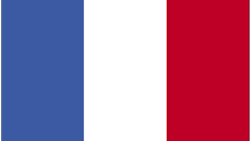France's Hollande Outlines 'Green' Energy Policy
President Francois Hollande Friday pledged to close France's oldest operational nuclear plant in 2016 and rejected seven proposals for shale gas exploration on health and environment concerns.
"The Fessenheim plant which is the oldest in our country, will be closed at the end of 2016 in conditions that will guarantee the supply needs of the region... and safeguard all jobs," he said at the start of a two-day energy conference.
France, the world's most nuclear-dependent country, operates 58 reactors and has been a leading international proponent of atomic energy.
But in a deal with the Greens before this year's parliamentary and presidential elections, Hollande's Socialist party promised to cut reliance on nuclear energy from more than 75% to 50% by shutting 24 reactors by 2025.
Addressing 14 ministers and about representatives from environmental bodies and business, Hollande said the nuclear plant at Fessenheim -- commissioned in 1977 and the object of a recent safety scare -- would be closed.
The plant, located on the banks of the Rhine, is close to the Swiss and German borders and is considered vulnerable to seismic activity and flooding.
Hollande also said seven applications for permission for hydraulic drilling to explore shale gas had rejected by his government, although he did not specify which ones.
"In the current form, no one can say that gas and shale exploration through hydraulic drilling, the only technique known today, is not exempt from posing great health and environment risks," he said.
Hollande affirmed his commitment to developing renewable energy and pledged every year to improve the energy efficiency of one million homes that are badly insulated.
France plans to reach the 10% European Union target of renewable energy in fuel by boosting the use of second-generation biofuels, which are made from crop residues, waste, algae or woody material, according to the action plan.
The president also announced the creation of a national biodiversity agency as demanded by several green organizations.
Copyright Agence France-Presse, 2012
About the Author
Agence France-Presse
Copyright Agence France-Presse, 2002-2025. AFP text, photos, graphics and logos shall not be reproduced, published, broadcast, rewritten for broadcast or publication or redistributed directly or indirectly in any medium. AFP shall not be held liable for any delays, inaccuracies, errors or omissions in any AFP content, or for any actions taken in consequence.
